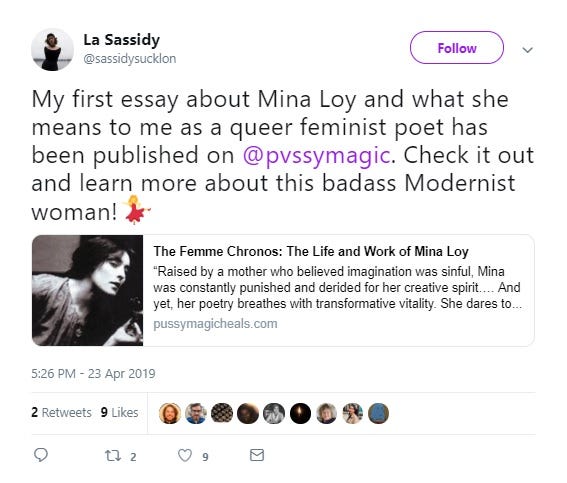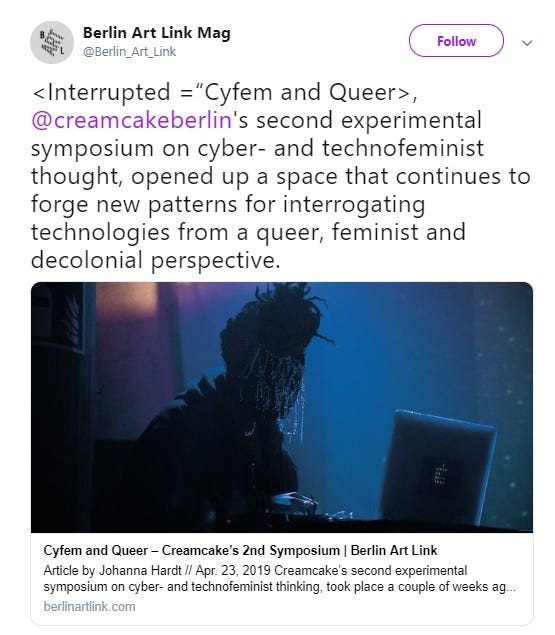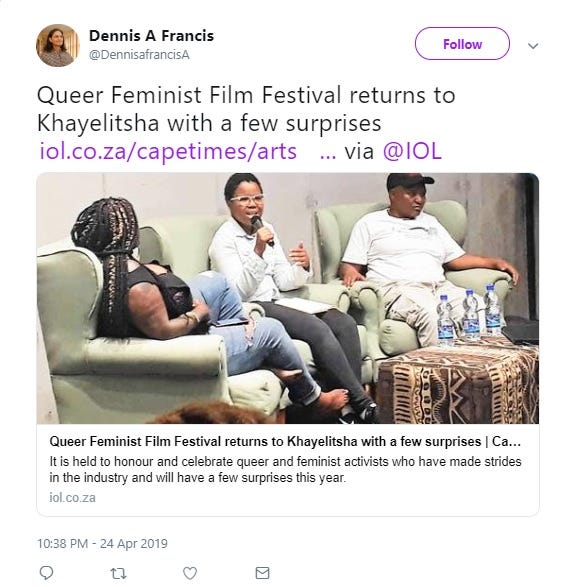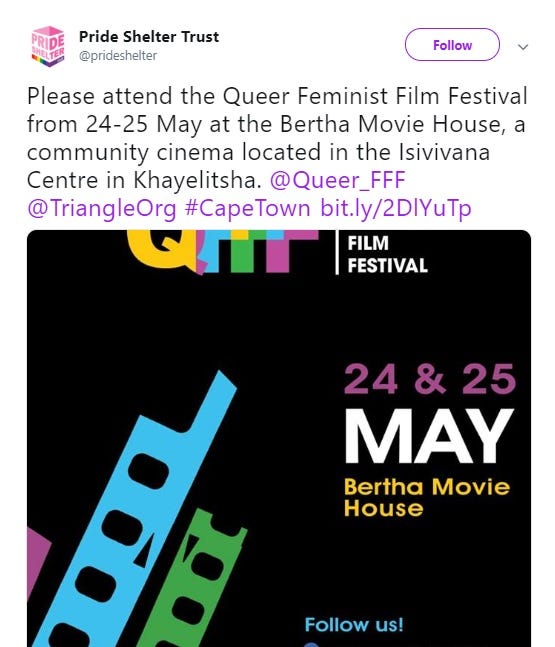Queer Theory is based on an interpretation of power which claims that children can consent to sex with adults. Dr Em investigates.




Introduction
When I see the term ‘queer feminist’ or ‘queer feminism’ I suspect, maybe hope, that those using these descriptors have not done the reading. As the old proverb states ‘the road to hell is lined with good intentions’. I do not believe that all these young woke people, charities, institutions and arts festivals are supportive of rape and paedophilia, of ‘queering’ and transgressing boundaries feminists have worked tirelessly to establish.1 Nevertheless, this is what queer theory aims at.2 As Sarah Beresford has analysed, ‘The term “Queer”… is by definition whatever is at odds with the normal, the legitimate, and the dominant, and aims to destabilize dominant ideas of identity, whether that identity is sexual, gendered, ethnic, national, and political and so forth’.3 This sounds liberating and progressive until we remember that ‘the normal, the legitimate, and the dominant’ include the idea that adults should not sexually abuse children. Unnervingly, the reframing of child sexual abuse and liberating of paedophilia from the margins of society is a dominant idea within queer theory. Although it has attempted to cloak itself under the rainbow and harness the energy, good will and gains gay, lesbian and bisexual people have fought for over decades Queer theory is anything but progressive. Indeed, it is totally opposed to same sex attraction. As Professor Alassandra Tanesini outlines, a ‘characteristic trait of queer theory is its opposition to any view that treats sexual orientation as anything other than socially constructed’.4 Thus, same sex attraction becomes a preference which can be unlearnt or cast as bigoted for being exclusionary. This is homophobia in a shiny new case.5 Unlike transgender ideology which is underpinned by queer theory, queer theory has key proponents and a body of literature which we may interrogate. This series of essays will first look at the post-modern foundations before moving on to queer theory and paedophilia.
Postmodernist Underpinning of Queer Theory
Queer theory was built on the philosophical traditions known as poststructuralism and postmodernism. Michel Foucault was the founding father of this new way of conceptualising reality and the human condition.6 Tamsin Spargo has claimed that Foucault’s ‘analysis of the interrelationships of knowledge, power and sexuality was the most important intellectual catalyst of queer theory.7 Similarly, Margaret A. McLaren has asserted that ‘Foucualt’s work has been foundational to queer theory’.8 Foucault advanced the idea that power is relational and ubiquitous. Rather than being dictated from above and unilateral Foucault claimed that power and prohibition was moveable and pervasive, being constructed through discourse. As Jane Clare Jones has explained, Foucault suggested ‘that discursive regimes — as regimes of power/ knowledge — produce the subjects they purport to describe’.9
In practice, this means that the harm of rape, for example, is how we discursively construct a victim and an offender rather than the physical act of rape itself. Furthermore, Foucault posited that the notion that fundamental or real structures underpinned events or materials such as texts was a fallacy. Foucault’s re-conceptualisation of the triad of discourse, power and knowledge entailed a re-thinking of resistance. Transgression of norms, and in particular sexual norms, became the only response to punishment and classification, which would, in Foucauldian thinking, challenge oppression and power. Although Foucault’s challenge to heteronormative dominance was a welcomed intervention, the extension of his idea that all norms are bad and freeing repressed deviant sexualities is good in and of itself poses serious problems.
Feminists have attempted to develop the cultural norm that rape is bad and that children cannot consent to sexual activity. These activities — rape and child sexual abuse — become reframed in postmodernism, and therefore queer theory, as repressed and a transgression of boundaries which is thus challenging power and helping to liberate the individual. For example, Foucault presented the prosecution of a child molester as a petty collective intolerance where the discourse constructs an offender and victim and enacts state power on an individual. Foucault related how
One day in 1867, a farm hand from the village of Lapcourt, who was somewhat simple-minded, employed here then there, depending on the season, living hand-to-mouth from a little charity or in exchange for the worst sort of labor, sleeping in barns and stables, was turned in to the authorities. At the border of a field, he had obtained a few caresses from a little girl, just as he had done before and seen done by the village urchins round about him; for, at the edge of the wood, or in the ditch by the road leading to Saint-Nicolas, they would play the familiar game called ‘curdled milk.’ So he was pointed out by the girl’s parents to the mayor of the village, reported by the mayor to the gendarmes, led by the gendarmes to the judge, who indicted him and turned him over first to a doctor, then to two other experts who not only wrote their report but also had it published. What is the significant thing about this story? The pettiness of it all; the fact that this everyday occurrence in the life of village sexuality, these inconsequential bucolic pleasures, could become, from a certain time, the object not only of a collective intolerance but of a judicial action, a medical intervention, a careful clinical examination, and an entire theoretical elaboration. 10
The harm in this scenario, according to Foucault, was the ‘authoritarian investigation’ which forced the ‘village halfwit’ to speak about giving ‘a few pennies to the little girls for favours the older ones refused him’.11 J. C. Jones provides further information of Foucault’s treatment of this incident of child sexual abuse. She details how
with the publication of Abnormal — the 1974–75 lectures at the College de France — we now know that Foucault’s treatment of the case in The History of Sexuality was not his first. On this occasion he gives more detail about the ‘obtained caresses’ than he was willing to put into print, while nonetheless retaining his stance of steadfast obfuscation and assuring his audience that the matter “you will see…is extremely banal.” …The farm hand named — amusingly Foucault imagines — Jouy, was, we learn, “denounced…by the parents of a little girl he had almost, partly, or more or less raped.” The assault occurred on “the day of the village festival” when “Jouy dragged young Sophie Adam (unless it was Sophie Adam who dragged Charles Jouy) into the ditch alongside the road to Nancy. There, something happened: almost rape, perhaps.” But this is nothing to trouble ourselves about. Jouy, you will be reassured, “very decently gives four sous to the little girl” who entirely unperturbed “immediately runs to the fair to buy some roasted almonds”.12
Sexual violence and child abuse are ‘extremely banal’ for Foucault. He presents the giving of money as purchasing the child’s consent after the act and thus changing the reality of the event. The notion that changing the discourse changes the experience and truth is particularly useful for queer theory which promotes men’s sexual rights and paedophilia.
Despite the supposed banality of adult sexual activity with children, Foucault remained concerned with age of consent legislation. In 1977 Foucault signed a petition to the French Parliament arguing for the abolition of all legislation regarding the age of consent, the effective legalisation of paedophilia.13 In 1978 Foucault participated in a radio broadcast which once again argued that age of consent legislation should be abolished and that children’s sexuality and supposed desire for sex with adults should be acknowledged. Published as ‘The Danger of Child Sexuality — an interview with Michel Foucault’, following Foucault’s introduction Guy Hocquenghem sums up the position of the three male thinkers:
Six months ago we launched a petition demanding the abrogation of a number of articles in the law, in particular those concerning relations between and decriminalization of relations between adults and minors below the age of fifteen. A lot of people signed it, people belonging to a wide range of political positions.14
There we have a justification for the legalisation of paedophilia based on its supposed popularity. This radio broadcast also included a startling defence of videos of child sexual abuse. Hocquenghem argued that
When someone says that child pornography is the most terrible of present scandals, one cannot but be struck by the disproportion between this — child pornography, which is not even prostitution — and everything that is happening in the world today- what the black population has to put up with in the United States, for instance.15
Yes, in this radio broadcast of a conversation between Foucault and two of his contemporaries it is being argued that because black people suffer racism in America that the sexual abuse of children should be filmed and distributed. The mind boggles. Foucault responded that ‘the child, with his own sexuality, may have desired that adult, he may even have consented, he may even have made the first moves. We may even agree that it was he who seduced the adult’ and claimed that legislation regarding ‘the relations between child and adult sexuality [were] extremely questionable’.16 That is the founding father of postmodernism and the underpinnings of queer theory. Hocquenghem continued the conversation alleging that
There is a whole mixture of notions that makes it possible to fabricate this notion of crime or offence against decency… which comprises both the religious prohibitions concerning sodomy and the completely new notions, to which Michel Foucault has just referred, about what people think they know of the total difference between the world of the child and the world of the adult. But todays overall tendency is indisputably not only to fabricate a type of crime that is quite simply the erotic or sensual relationship between a child and an adult.17
Yes, these men publicly argued that adults penetrating children is a fabricated crime because people are ignorant and arrogant in asserting the separation of the world and understanding of a child and an adult. One presumes that their next campaign is for child prime ministers, child intellectuals and if they need medical care they will allow a child to perform it? When sexual abusers make the argument that children can understand and enjoy sex with adults they never carry it over to other aspects of life. This notion of child consent and child focus on activities regarding their genitals is something we see carried over by queer theory in the concept of the transgender child. With such an intellectual pedigree is it any wonder that alarm bells are ringing?
The third speaker, Jean Danet, offers more theorising on consent and paedophilia. Danet made the case that
When we say that the problem of consent is quite central in matters concerned with pedophilia, we are not… saying that consent is always there. But — and this is where one may separate the attitude of the law with regard to rape and with regard to pedophilia — in the case of rape, judges consider that there is a presumption of consent on the part of the woman and that the opposite has to be demonstrated. Whereas where pedophilia is concerned… It’s considered that there is a presumption of non-consent, a presumption of violence, even in a case where no charge of an indecent act with violence has been made, that is… with consenting pleasure — because it has to be said that this act without violence is the repressive, legal translation of consenting pleasure. It’s pretty clear haw the system of proof is manipulated in opposite ways in the case of rape of women and in the case of indecent assault on a minor.18
There is some mighty projection occurring with the notion of ‘consenting pleasure’. The two are incomparable, women have the adult faculties and understanding to engage in sexual activity, children do not. Foucault was clear that ‘an age barrier laid down by law does not have much sense. Again, the child may be trusted to say whether or not he was subjected to violence’.19 Foucault adds his opinion that ‘to assume that a child is incapable of explaining what happened and was incapable of giving his consent are two abuses that are intolerable, quite unacceptable’.20 There it is, the father of postmodernism and grandfather of queer theory declaring that the idea that a child cannot consent to sexual activity with an adult, cannot sanction their own abuse is ‘intolerable’ and ‘unacceptable’. How are thinkers proposing such ideas lauded as philosophical geniuses? This reframing of the unacceptable and the notion that language supersedes reality was the mantel which queer theory was to pick up.
Part II:
https://uncommongroundmedia.com/the-trojan-unicorn-qt-and-paedophilia-part-ii-dr-em/
-
Age of consent and rape legislation was an important part of first wave feminism’s agenda. See J. E. Larson, “Even a Worm Will Turn at Last”: Rape Reform in Late Nineteenth-Century America’, Yale Journal of Law & the Humanities, Vol. 9, no. 1 (January 1997), pp. 1–71. -
J. C. Jones, ‘Queer Theory, Foucauldian Feminism and the Erasure of Rape Historical Notes for a Present War’, https://janeclarejones.files.wordpress.com/2018/08/queerfoucault-feminismrape.pdf - S. Beresford, ‘The Age of Consent and the Ending of Queer Theory’, Laws (2014), 3, p. 763.
- A. Tanesini, Feminism: Oxford Bibliographies Online Research Guide (Oxford, Oxford University Press, 2010), p.12.
- My analysis of the intrinsic homophobia of queer theory is forthcoming.
-
See: Dr. Em, ‘Sex and Social Constructionism’, pp. 7–9. https://uncommongroundmedia.com/sex-and-social-constructionism-dr-em-banned-from-medium/ - T. Spargo, Postmodern Encounters: Foucault and Queer Theory (Icon Books, Cambridge, 2000), p. 8.
- M. A. Mclaren, Feminism. Foucault, and Embodied Subjectivity (State University of New York Press, Albany, 2002), p. 144.
- J. C. Jones, ‘Queer Theory, Foucauldian Feminism and the Erasure of Rape Historical Notes for a Present War’, p. 8 https://janeclarejones.files.wordpress.com/2018/08/queerfoucault-feminismrape.pdf
-
M. Foucault, The History of Sexuality Volume I: An Introduction (Pantheon Books, New York, 1978), p. 31. - ibid. p. 32.
-
J. C. Jones, ‘Queer Theory, Foucauldian Feminism and the Erasure of Rape Historical Notes for a Present War’, pp. 11–12.
<https://janeclarejones.files.wordpress.com/2018/08/queerfoucault-feminismrape.pdf -
L. D. Krizman (ed), Sexual Morality and the Law (Routledge, London, 1990), p. 275. -
“The Danger of Child Sexuality”, pp. 2 -3. Foucault’s dialogue with Guy Hocquenghem and Jean Danet, was produced by Roger Pillaudin and broadcast by France Culture on April 4, 1978. It was published as “La Loi de la pudeur” in RECHERCHES 37, April 1979. First published in English in Semiotext(e) Magazine (New York): Semiotext(e) Special Intervention Series 2: Loving Boys / Loving Children (Summer 1980), in a translation by Daniel Moshenberg.
https://www.uib.no/sites/w3.uib.no/files/attachments/foucaultdangerchildsexuality_0.pdf - ibid. p. 3.
- ibid. pp. 7–8
- ibid. p. 8
- ibid. pp. 14–15.
- ibid. p.16.
- ibid. p. 15.








